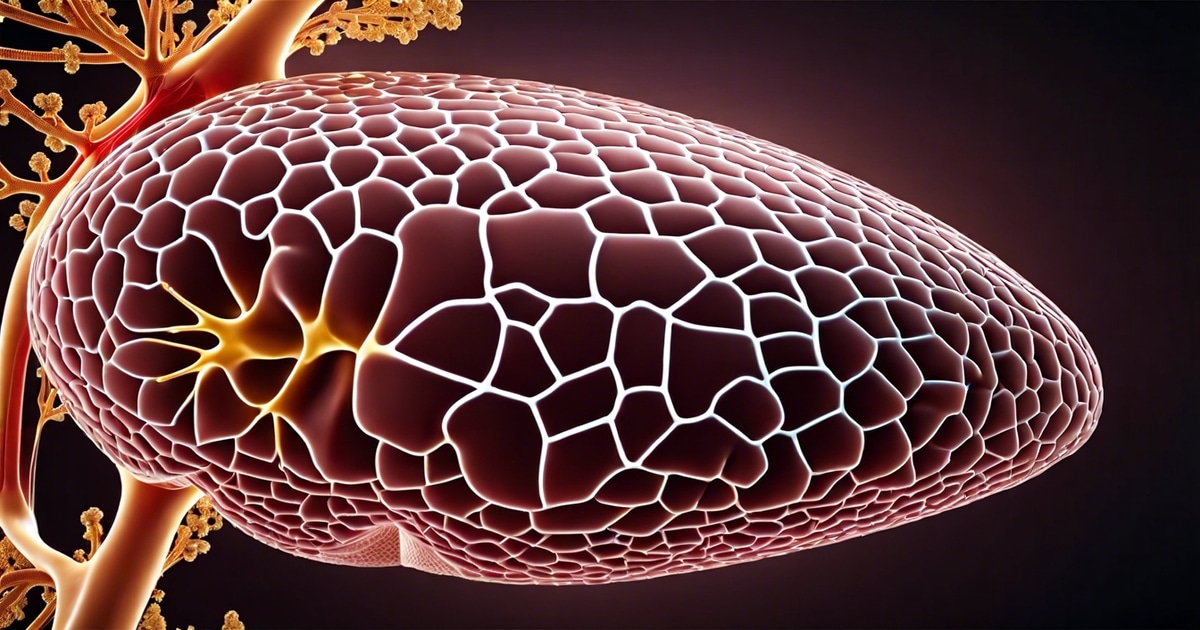Key Takeaways
-
Incorporating artichokes, plant extracts, and foods into your diet can benefit liver health, manage high blood pressure, promote weight loss, and improve digestion.
-
Artichoke extract, a plant extract, may assist in managing cholesterol levels, offering a natural approach to cardiovascular health.
-
Artichokes’ potential anticancer and anti-aging properties make them a valuable addition to a health-conscious lifestyle.
-
Be mindful of possible side effects and risks associated with artichoke consumption, especially for individuals with allergies or certain health conditions.
-
Follow recommended dosage, safety guidelines, and consumption practices to maximize the health benefits of artichokes while minimizing any potential risks.
-
By understanding the various artichoke side effects and benefits, you can make informed decisions about incorporating them into your diet.
Unraveling the mysteries of artichokes, a food, reveals a treasure trove of benefits and potential side effects. Dating back to ancient times, these thistle-like vegetables, artichokes, have been celebrated for their unique taste and medicinal properties. Dive into this food guide to discover how artichokes can boost your health while being mindful of any adverse reactions they may cause. Let’s explore the fascinating world of artichoke side effects, benefits, and food together.
Overview of Artichoke Health Benefits
Antioxidant Properties
Artichokes are rich in antioxidants, which protect the body from damage caused by harmful molecules. These antioxidants help combat oxidative stress, reducing the risk of chronic diseases. For example, compounds like quercetin and rutin found in artichokes have anti-inflammatory effects that support heart health.
Artichokes also contain phytonutrients such as cynarin and silymarin, which promote liver health by aiding in detoxification. These nutrients help cleanse the liver and improve its function, contributing to overall well-being.
Digestive Health Support
The high fiber content in artichokes is beneficial for digestion. Fiber aids bowel regularity, preventing constipation and promoting a healthy gut microbiome. Artichokes contain prebiotics that feed beneficial bacteria in the gut, enhancing digestive health further.
Consuming artichokes can assist with weight management due to their low-calorie content and high fiber levels. The fiber helps you feel full longer after meals, reducing overall calorie intake throughout the day.
Artichoke and Liver Health

Liver Function Support
Artichokes have a long history of being linked to liver health. The active compounds in artichokes, like cynarin, can boost bile production in the liver. This process helps improve overall liver function by aiding in digestion and detoxification.
Consuming artichokes regularly may shield the liver from damage caused by toxins or excessive alcohol intake. By promoting healthy bile flow, artichokes support the liver’s ability to process nutrients efficiently and eliminate waste products effectively.
Protection Against Damage
The benefits of artichokes extend to protecting the liver from hepatitis, high blood pressure, etc. For instance, studies suggest that these spiky vegetables could safeguard against fatty liver disease, where fat accumulates in the liver cells. Furthermore, research indicates that artichoke leaf juice might help prevent liver injury induced by certain toxins.
Managing High Blood Pressure with Artichokes
Regulating Blood Pressure Levels
Artichokes are a natural source of potassium, which helps regulate blood pressure levels. The potassium in artichokes plays a crucial role in balancing the sodium levels in the body, aiding in maintaining healthy blood pressure. Individuals can benefit from consuming artichokes regularly as a natural way to manage their high blood pressure.
Artichokes’ high fiber content also lowers blood pressure by reducing cholesterol levels. The fiber helps prevent cholesterol absorption into the bloodstream, keeping arteries clear and promoting healthy blood flow. This process aids in managing hypertension and reducing the risk of cardiovascular diseases associated with high blood pressure.
Antihypertensive Effects
Studies suggest that artichoke extract may have antihypertensive effects, making it beneficial for individuals with high blood pressure or mild hypertension. Including artichokes in one’s diet can potentially help lower diastolic and overall blood pressure, supporting overall heart health and well-being.
-
Consuming artichokes regulates potassium levels.
-
The fiber content reduces cholesterol absorption.
-
Studies indicate potential antihypertensive effects of artichoke extract.
Weight Loss and Digestive Benefits
Promoting Weight Loss
Artichokes are rich in fiber, which helps you feel full longer, aiding in weight loss. This fiber also supports healthy digestion by promoting regular bowel movements. You can manage your weight more effectively by incorporating artichokes into your diet.
Artichokes act as a natural diuretic, reducing water retention and bloating. This helps with weight management and contributes to overall well-being by alleviating discomfort caused by bloating. Moreover, the diuretic effect of artichokes can help flush out toxins from the body.
Supporting Digestive Health
The prebiotic fibers present in artichokes play a crucial role in supporting the growth of beneficial gut bacteria. These fibers act as food for good bacteria in your gut, promoting a healthy balance of microorganisms that aid digestion. Regularly consuming artichokes can improve your gastrointestinal health and reduce issues like indigestion or irritable bowel syndrome.
-
Pros:
-
Aids in weight loss efforts.
-
It acts as a natural diuretic to reduce water retention.
-
Supports the growth of beneficial gut bacteria for healthy digestion.
Artichoke Extract for Cholesterol Management

LDL and HDL Levels
Artichoke leaf extract can help manage cholesterol levels effectively. It has been found to decrease LDL cholesterol while increasing HDL cholesterol. This means it lowers “bad” cholesterol (LDL) and raises “good” cholesterol (HDL).
-
Reduces LDL cholesterol
-
Increases HDL cholesterol
Inhibiting Cholesterol Synthesis
The active compound cynarin in artichokes plays a crucial role in inhibiting cholesterol biosynthesis in the liver. By limiting the production of new cholesterol, cynarin from artichoke helps maintain healthy lipid metabolism.
-
Cynarin inhibits cholesterol synthesis
-
It helps regulate lipid metabolism
Potential Anticancer and Anti-Aging Properties
Cancer-Fighting Compounds
Artichokes, rich in polyphenolic compounds like silymarin and quercetin, exhibit potential anti-cancer effects. These compounds have been studied extensively for their ability to inhibit cancer cell growth. For instance, research has shown that artichoke extract can induce apoptosis, a process where damaged cells self-destruct. This property is crucial in fighting against the development and spread of cancer within the body.
-
Artichokes contain phytochemicals with protective properties.
-
Plant extracts from artichokes are being explored for their therapeutic use in combating cancer.
Anti-Aging Benefits
The antioxidant capacity of artichokes plays a vital role in protecting cells from damage caused by oxidative stress. By neutralizing harmful free radicals, these antioxidants help prevent premature aging at a cellular level. Incorporating artichokes into one’s diet can contribute to maintaining youthful skin and overall health by combatting oxidative stress effectively.
-
The protective effect of phenolic compounds found in plants like artichokes promotes longevity.
-
Consuming nutrient-rich foods such as artichokes supports cellular health and fights signs of aging.
Side Effects and Risks of Artichoke Consumption
Digestive Discomfort
Some individuals might experience side effects like gas or bloating after eating artichokes. These symptoms are common due to the high fiber content in artichokes, which can be hard for some stomachs to digest properly.
Artichokes contain fructans that can lead to gas production in the gut, causing discomfort for some people. If you notice these adverse reactions or changes in blood pressure, try consuming smaller portions of artichokes or cooking them differently to see if it helps reduce digestive issues.
Allergic Reactions and Consultation
While allergic reactions to artichokes are rare, they can still occur in sensitive individuals. Symptoms may include itching, swelling, or more severe reactions like anaphylaxis. You must seek medical attention immediately if you suspect an allergic reaction after consuming artichokes.
Individuals with gallbladder problems or bile duct obstruction should consult a healthcare professional before adding artichokes to their diet. The high concentration of oxalates in artichokes could potentially worsen blood pressure conditions, leading to further health complications.
Dosage, Safety, and Consumption Guidelines
Artichoke Dosage and Consumption
Artichokes do not have a specific recommended dosage. Incorporating them into your diet is generally safe. Enjoy fresh steamed, boiled, or grilled artichokes for their maximum nutritional benefits in lowering blood pressure.
Artichoke supplements should be taken as per the manufacturer’s instructions. It’s crucial to seek medical advice before starting any dietary supplement regimen involving artichokes to ensure safety and regulate blood pressure.
Safety Measures and Considerations
There are no known risks of toxicity associated with eating them in moderation as part of a balanced diet. However, it’s essential to consult with a healthcare professional if you have any underlying health conditions or concerns about potential interactions with medications.
-
Pros:
-
Rich in fiber and antioxidants.
-
Supports digestive health.
-
Cons:
-
It can cause allergic reactions in some individuals.
-
It may interact with certain medications like blood thinners.
Summary
You’ve learned about the fantastic benefits of artichokes, from supporting liver health to managing high blood pressure and aiding in weight loss. Artichoke extract might even help with cholesterol levels and possess anti-cancer properties. However, be cautious of potential side effects like gas or allergies. Always follow recommended dosage guidelines and consult a healthcare provider if needed.
Incorporate artichokes into your diet wisely to reap their numerous advantages while being mindful of any adverse reactions. Experiment with various recipes to find enjoyable ways to include this superfood, artichoke, in your meals. Stay informed about the latest research on artichokes and blood pressure for overall well-being, and make informed choices about your health journey.
Frequently Asked Questions
What are the potential benefits of consuming artichokes?
Artichokes offer a range of health benefits, including liver support, blood pressure management, weight loss aid, cholesterol reduction, and even potential anticancer and anti-aging properties. Artichokes are a versatile vegetable with numerous positive effects on overall well-being.
Are there any specific guidelines for safely consuming artichokes?
To enjoy artichokes safely and maximize their benefits, ensure you cook them thoroughly to avoid digestive issues. Adhere to recommended dosage levels to prevent any adverse effects. If you have existing health conditions or concerns, consult a healthcare provider before adding artichokes to your diet to manage blood pressure.
Can artichoke consumption lead to any side effects or risks?
While generally safe for most people when consumed in moderation as part of a balanced diet, some individuals may experience side effects such as gas or allergic reactions. Excessive intake could potentially lead to complications like kidney issues due to oxalate content. Monitor your body’s response and adjust consumption accordingly.
How can one incorporate artichokes into their daily diet effectively?
You can include artichokes in various dishes such as salads, dips, pasta sauces, or simply steamed with olive oil and herbs. Experiment with different recipes to find what suits your taste buds best while reaping artichokes’ nutritional rewards.
Is it true that artichoke extract is beneficial for managing cholesterol levels?
Yes! Artichoke extract contains compounds that help reduce LDL cholesterol levels in the body while promoting HDL cholesterol (the good kind). This natural remedy can be an excellent addition for those looking to maintain healthy cholesterol levels without relying solely on medications.

